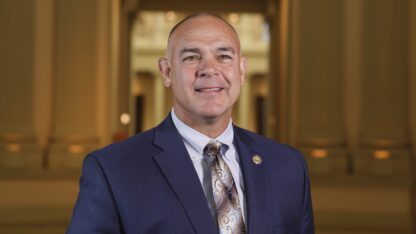Alain de Botton is the author of Religion for Atheists.
A survey published in the U.K. in January predicted that within 20 years, the majority of the British population will define themselves as having no religion. In the British isles, religion has become something of a sideshow, even a joke. Remember that this is the land that gave us The Life of Brian. Even the BBC has caught on with a satirical series called Rev., about a hapless comedic clergyman who has no faith but has a strong inclination to be good.
Of all the cultural differences between the old world and the new, this is perhaps the greatest. We think it rude to talk of money or sex: you think it rude to bring up religion. In both cases, at issue is what it might take to tread on sensitivities and cause offense. Euphemisms abound in the U.S.: “Do you come from a large family?” for “Are you Catholic?”
And yet, surveying the bitter religious disputes in the U.S., an outsider like me thinks just one phrase: the Jefferson Bible.
One of your greatest presidents famously tried to overcome the divisions between theism and atheism by rewriting the New Testament — with all the supernatural bits left out. Thomas Jefferson’s new version emphasized Jesus’ wisdom, ethics and consoling power. In so doing, he appealed to the entire nation, even those of different or no faith at all. It was a move of intellectual deftness which I can appreciate: I was brought up an atheist, and while I still don’t believe, I’ve lost my cynicism. Now I long only for Jefferson’s spirit of conciliation.
But where is that spirit now?
Unfortunately, recent public discussions on religion in the U.S. have focused obsessively on the most polarizing point of them all — whether or not the whole thing is true: a hardcore swathe of believers pits themselves against an equally strong band of atheists. Think of Christopher Hitchens’ and Douglas Wilson’s legendary book tours around the Bible Belt, where rallies would take place outside normally sedate lecture halls.
But, Jefferson in mind, I prefer a different tack. To me, the real issue is not whether God exists, but where one takes the argument to once one concludes that he might not. I believe it must be possible to remain an atheist and nevertheless to find religions sporadically useful, interesting and comforting — and be curious as to the possibilities of importing certain of their ideas and practices into the secular realm.
The error of modern atheism has been to overlook how many sides of the faiths remain relevant even after their central tenets have been dismissed. Once we stop feeling that we must either prostrate ourselves before them or denigrate them, we can discover their occasionally ingenious concepts.
Ultimately, atheists need to rescue some of what is beautiful from all that no longer seems true. With Jefferson’s example before us, I propose that the wisdom of the faiths belongs to all of mankind, even the most rational among us, and deserves to be selectively reabsorbed by the supernatural’s greatest enemies.
As your great president knew, religions are intermittently too useful, effective and intelligent to be abandoned to the religious alone.
Copyright 2017 NPR. To see more, visit http://www.npr.org/.
9(MDAxODM0MDY4MDEyMTY4NDA3MzI3YjkzMw004))
9(MDAxODM0MDY4MDEyMTY4NDA3MzI3YjkzMw004))






